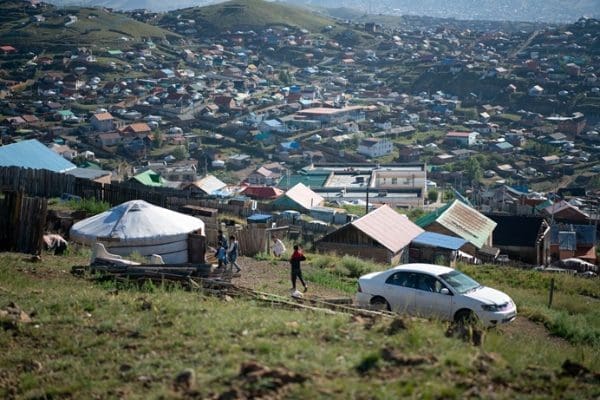Three youth-led environmental initiatives spanning Mongolia, Mexico, and the Philippines have received international recognition through The Iris Prize 2025, highlighting innovative approaches to air quality monitoring, river ecosystem restoration, and marine species protection.
The winners emerged from 1,552 applications across 111 countries, demonstrating unprecedented global engagement in youth environmental leadership. The annual awards program distributed $43,000 across three categories while providing comprehensive support including mentorship, training, and capacity-building resources.
Breathe Mongolia claimed the top $15,000 Iris Prize for addressing the nation’s severe air pollution crisis through youth advocacy and real-time monitoring systems. The team has trained over 600 young people and mobilized 100 volunteers while extending climate education to rural communities through inclusive messaging strategies.
Mexico’s Viaje al Microcosmos de Nuevo León secured the $10,000 Stem Prize for transforming Monterrey’s Santa Catarina River into a citizen-science laboratory. Through open expeditions and DIY microscopy, the project has built a 600-person observer community and increased recorded species from 781 to 1,126, strengthening legal arguments for river protection.
Project Lawud from the Philippines received the $5,000 Seed Prize for protecting endangered dugongs in Sarangani Bay through community-based science initiatives. The team maps wildlife sightings, trains young marine biologists, and conducts awareness campaigns that address critical data gaps influencing marine conservation policy.
The recognition comes amid growing acknowledgment of youth environmental leadership, though funding remains severely limited with less than 1% of institutional climate funding directed toward youth-led initiatives. This funding disparity persists despite evidence that young leaders often develop solutions closest to environmental challenges.
Since launching in 2022, The Iris Project has channeled over £718,000 in funding and support to 28 youth-led projects across 21 countries. The initiative operates as a trust-based, flexible funder providing holistic support beyond traditional grants, including organizational development and peer learning opportunities.
Previous winners have tackled diverse challenges including lake pollution in Bolivia, bee population decline in Sierra Leone, and aquaculture research training for fisherwomen in Guatemala. The program’s comprehensive approach emphasizes collective leadership rather than individual achievements.
Millie Edwards, Director at The Iris Project, emphasized the urgency of supporting youth environmental leadership as climate and ecological crises accelerate. The organization maintains that backing young innovators represents an essential investment in sustainable futures rather than optional philanthropic activity.
International recognition continues expanding for youth climate initiatives, with programs like UNDP’s Youth4Climate providing up to $30,000 per project while mobilizing over 3,000 young innovators since 2023. These funding mechanisms acknowledge youth capacity for environmental innovation and community engagement.
The Iris Project operates in collaboration with the Global Fund for Children and was established in memory of Iris Goldsmith, who died in an accident aged 15. The memorial initiative reflects her connection with the natural world and passion for marine environments.
Desmond Alugnoa, Co-Founder of the Green Africa Youth Organisation and 2024 Earthshot Prize winner, served on this year’s judging panel. He highlighted how transformative climate solutions often emerge from communities closest to environmental challenges, praising winners’ creativity, courage, and commitment.
The trust-based funding model emphasizes context-specific support that empowers lasting environmental change. Rather than concentrating on individual achievements, the approach fosters collaboration and shared responsibility to amplify collective impact across youth-driven initiatives worldwide.
Environmental observers note that youth-led projects often demonstrate superior community engagement and innovative problem-solving compared to traditional conservation approaches. The winners’ diverse geographical representation illustrates global youth capacity for addressing local environmental challenges with universal implications.
The three categories – Seed, Stem, and Iris prizes – support projects at different development stages, from conceptual ideas to established initiatives with replication potential. This tiered approach enables comprehensive support across the full spectrum of youth environmental leadership.
Award recipients will participate in ongoing mentorship programs, capacity-building initiatives, and peer networks designed to sustain and expand their environmental impact beyond initial funding periods. The comprehensive support model reflects understanding that effective environmental change requires sustained investment in young leaders’ professional development.
Source: newsghana.com.gh











